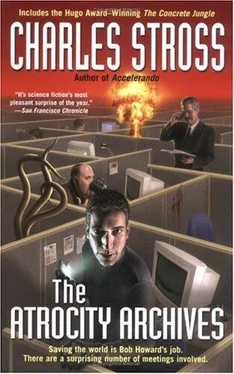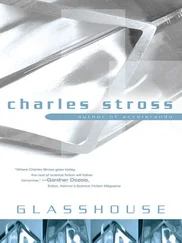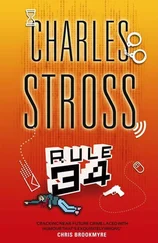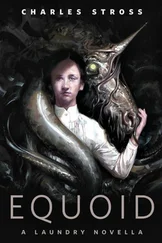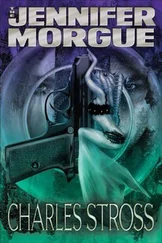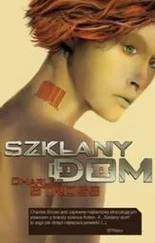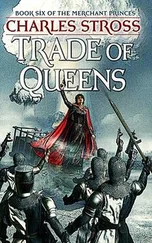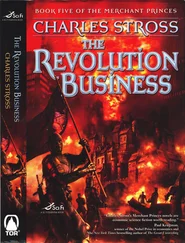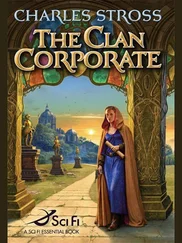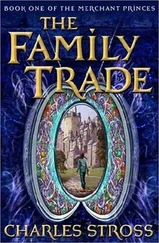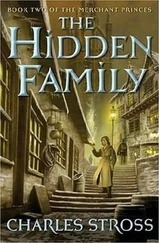Charles Stross - The Atrocity Archives
Здесь есть возможность читать онлайн «Charles Stross - The Atrocity Archives» весь текст электронной книги совершенно бесплатно (целиком полную версию без сокращений). В некоторых случаях можно слушать аудио, скачать через торрент в формате fb2 и присутствует краткое содержание. Жанр: Киберпанк, на английском языке. Описание произведения, (предисловие) а так же отзывы посетителей доступны на портале библиотеки ЛибКат.
- Название:The Atrocity Archives
- Автор:
- Жанр:
- Год:неизвестен
- ISBN:нет данных
- Рейтинг книги:3 / 5. Голосов: 1
-
Избранное:Добавить в избранное
- Отзывы:
-
Ваша оценка:
- 60
- 1
- 2
- 3
- 4
- 5
The Atrocity Archives: краткое содержание, описание и аннотация
Предлагаем к чтению аннотацию, описание, краткое содержание или предисловие (зависит от того, что написал сам автор книги «The Atrocity Archives»). Если вы не нашли необходимую информацию о книге — напишите в комментариях, мы постараемся отыскать её.
The Atrocity Archives — читать онлайн бесплатно полную книгу (весь текст) целиком
Ниже представлен текст книги, разбитый по страницам. Система сохранения места последней прочитанной страницы, позволяет с удобством читать онлайн бесплатно книгу «The Atrocity Archives», без необходимости каждый раз заново искать на чём Вы остановились. Поставьте закладку, и сможете в любой момент перейти на страницу, на которой закончили чтение.
Интервал:
Закладка:
The metafictional conceit that magic is a science has been used in fantasy-or science fiction-several times. James Gunn's The Magicians is explicitly based upon it. Rick Cook managed to squeeze several books from the idea of a socially clueless programmer stranded in fantasyland and forced to compete with the magi by applying his unfair expertise in compiler design. There is something about mathematics that makes it seem to beg for this sort of misappropriation: an image problem deeply rooted both in the way that the queen of sciences is taught, and in the way we think about it-in the philosophy of mathematics.
Plato spoke of a realm of mathematical truth, and took the view that unearthing a theorem was a matter of discovery: it revealed its truth to us like a shadow cast upon the wall of a cave by a light source and a reality invisible to our eyes. Later Descartes used similar reasoning and a weasely analogical excuse to split the world into things of the spirit and of the flesh. If the body was clearly an organic machine, someone had to be in a driving seat controlling it through a switchboard located (he believed) in the pineal gland.
The history of nineteenth- and twentieth-century medical research was a disaster for the idea of an immortal soul. Mind-body dualism sounds good, until you realise that it implies that the body's sensory nerves must in some way transfer information to the soul, and the soul must somehow affect the dumb matter with which it is associated. When the best microscopes could barely resolve nerve fibres, this was not a problem: but the devil lies in the detail, and with electron micrographs taking us down to the macromolecular level of cytology, and with biochemistry finally beginning to explain how everything works, the brain was revealed for what it is-a mass of fleshy endocrine cells squirting their neurotransmitter messages at one another in promiscuous abandon. There is precious little room left for a soul that can remain hidden but nevertheless influence the flesh.
But. Let us take Plato's realm of mathematical abstraction seriously; and with it, let us adopt the Wheeler model of quantum cosmology-that there exists an infinity of possible worlds, and all of them are real. Can we, by way of the Platonic realm, transfer signals between our own sheaf of human-friendly realities and others, infinitely distant and infinitely close, where other minds might listen? What if, in other words, the multiverse is leaky? What sort of people might first discover such information leakage, and to what use would they put it, and what risks would they encounter in the process?
This is the twentieth (and early twenty-first) century, an age of spooks and wonder, of conspiracies and Cold War, an age in which the horror of the pulp magazines lurched forth onto the world stage in trillion-dollar weapons projects capable of smashing cities and incinerating millions. This is not the era of the two-fisted hero-scientist putting the finishing touches on his spherical exploration machine before setting off on a flight to Galaxy Z. Nor is it the age of the mad scientist in his castle basement, laboriously stitching together the graveyard trawl while Igor flies a kite from the battlements to bring the animating power down to the thing on the slab. It is the decade of the computer scientist, the fast-thinking designer of abstract machines that float on a Platonic realm of thought and blink in or out of existence with a mouseclick.
We can get some ideas about the lives and occupations of these people by extrapolating from the published material about the intelligence services. James Bamford's Body of Secrets, a deep and fascinating history of the US National Security Agency, offers some hints from outside-as do other histories of the cryptic profession, such as David Kahn's The Codebreakers and Alan Hodges's masterful biography of Alan Turing-for if any agency gets its hands on tools for probing the Platonic realm, it will be a kissing cousin of the kings of cryptography.
We can draw some other conclusions from the unspoken and unwritten history of the secret services. Why, for example, was the British Special Operations Executive disbanded so suddenly in 1945? One version is that the rivalry between SOE and the established Secret Intelligence Service was bitter, and after the 1945 election SIS lobbied the new government to disband SOE. But we know that when other similar organisations have disbanded they have left ghosts behind. US Secretary of State Henry Stimson disbanded the Black Chamber in 1929, with the immortal phrase, "gentlemen do not read each other's mail," but that didn't stop the Black Chamber's secrets ending up in Room 3416 of the Munitions Building, there to become the core of the Army's new Signal Intelligence Service.
British governments are less forthcoming-many of Whitehall's deepest secrets are stored in boxes labelled for release no less than a hundred years after the events they describe-but we can guess at similar revenants of SOE surviving the winter of the war, just as we know that many of the secrets of Bletchley Park's codebreaking operation ended up in Cheltenham, at the new (and unimportant-sounding) Government Communications Headquarters. SOE was deeply engaged with resistance operations against the Nazi occupation of Europe during the Second World War; if by some chance the Ahnenerbe-SS were sheltering ghastly secrets, it is unlikely that the subsequent custodians of such knowledge would have joined their comrades mustering out of service at the end of the conflict.
We can extrapolate somewhat from the post-1945 growth of the intelligence agencies. Back in 1930, when William Friedman became the first chief of the US Army Signal Intelligence Service, the new successor to the Black Chamber had just three employees. By the year 2000, Crypto City-the NSA headquarters in Maryland-had a population of 32,000 regular workers and an annual budget on the order of seven billion dollars. The much smaller Government Communications HQ (GCHQ)-Britain's equivalent of the NSA-still has a budget measured in the high hundreds of millions. Information is power, and these agencies wield it without much restraint on the purse strings and without substantial external oversight. We can assume that even a relatively small 1945-vintage occult intelligence operation would have grown over the years into a sprawling organisation with either a huge central office or, possibly, multiple secure sites dotted around the country.
Finally, this brings us back to the Laundry. The Laundry squats at the heart of a dark web, the collision between paranoia and secrecy on one hand, and the urge to knowledge on the other. Guardians of the dark secrets that threaten to drown us in nightmare, their lips are sealed as tightly as their archives. To get even the vaguest outline of their activities takes a privileged trickster-fool hacker like Bob, nosy enough to worm his way in where he isn't supposed to be and smart enough to explain his way out of trouble. Some day Bob will grow up, fully understand the ghastly responsibilities that go with his job, shut the hell up, and stop digging. But until then, let us by all means use him as our unquiet guide to the corridors of the Fear Factory.
Afternote: Two Frequently Asked Questions
While I was writing "The Atrocity Archive," my friend Andrew Wilson (science fiction reviewer for The Scotsman ) kept telling me: "For God's sake, don't read Declare by Tim Powers until you finish the novel."
Powers is a remarkable writer, and in Declare he explored an arcane world remarkably close to that of "The Atrocity Archive." The points of similarity are striking: rogue departments within SOE that survive the end of the war, operations in the British secret intelligence community that focus on the occult and run independently of anything else for a period of decades-even a protagonist who, with a special SAS team, tries to take on a supernatural horror.
Читать дальшеИнтервал:
Закладка:
Похожие книги на «The Atrocity Archives»
Представляем Вашему вниманию похожие книги на «The Atrocity Archives» списком для выбора. Мы отобрали схожую по названию и смыслу литературу в надежде предоставить читателям больше вариантов отыскать новые, интересные, ещё непрочитанные произведения.
Обсуждение, отзывы о книге «The Atrocity Archives» и просто собственные мнения читателей. Оставьте ваши комментарии, напишите, что Вы думаете о произведении, его смысле или главных героях. Укажите что конкретно понравилось, а что нет, и почему Вы так считаете.
